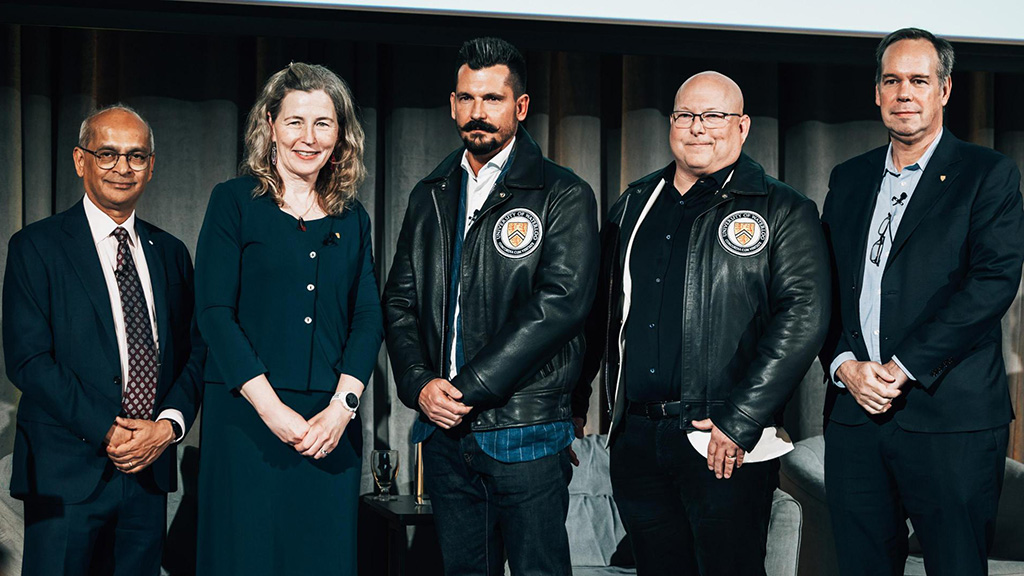Ottawa-based developer and homebuilder Caivan Group has donated $10 million to launch the new Future Cities Institute (FCI) in partnership with the University of Waterloo, aiming to harness AI to transform the way cities are modelled and developed.
Caivan co-founder and CEO Frank Cairo says the FCI will seek radical reforms to the city-planning and development sectors at a time when conventional thinking has led to a housing crisis that is “one of the worst human issues of our time.”
Cities are planned and built based not on data-supported methodologies but rather on political philosophies and anecdotes, he says.
“The institute will foster thought-provoking debate, challenge orthodoxy and produce research that allows city-builders to make evidence-based decisions,” said Cairo. “The pursuit of science and truth is the unifying element in this age of growing dogma.”
‘Bold new mission’
The FCI will be an interdisciplinary hub housed within Waterloo’s Faculty of Environment. It was launched April 3 at the university. It is described as a “bold new mission to create healthier, more prosperous cities.”
Caivan operates in more than 50 communities across the GTA and in Ottawa. Cairo and Caivan co-CEO Troy van Haastrecht are alumni of the University of Waterloo. They have supported the FCI since 2021, donating an initial $1 million in seed money.
Caivan operates a housing innovation division called the Advanced Building Innovation Company which has developed proprietary software employing AI, land-use optimization algorithms and generative design tools.
“The human condition has deteriorated in Ontario and in Canada, probably most fundamentally by the decline in productivity,” said Cairo.
“We don’t feel that there’s enough optimization, and layering of objectivity, in land use planning, and infrastructure engineering, and in just, generally speaking, the way cities are built and put together, disconnected to economic prosperity.”
Scholars, developers to work together
Funding the FCI and working with its scholars, Caivan Group aims to lend its AI technologies to help reform how cities will be laid out, how homes will be built, how cities will be sustainable and how infrastructure will be planned and developed. Cairo said each municipality would become better equipped to tailor solutions to its particular needs.
“It means balancing all the factors that relate not only to municipal decision-making, but also building collaboration between academics, researchers, the industry and government to really think about KPIs for municipalities — what are the main drivers of prosperity region by region?” he explained.
“How do we rebuild official plans, instead of focusing on the buzzwords?”
Cairo pointed to the City of Ottawa’s intensification plan as an example of a program that is doomed to failure from the outset. The city wants more than 60 per cent of all new growth over the next 20 years to take place inside existing municipal neighbourhoods.

Using predictive modelling to assess that target, Cairo said, “the probability of that success is extraordinarily low. In fact, it’s approaching zero. So right off the bat, the municipality is banking on something that unequivocally is not possible to or not probable to occur.”
The University of Waterloo was selected for the new FCI first, because of its enlightened approach to STEM, said Cairo, and second, due to the vision of its president and vice-chancellor Vivek Goel.
“They set a very bold vision for Waterloo at 100 years old. Dr. Goel has set these targets around a global future,” he said. “And at the core of that is this idea that the status quo is not going to work forever. As we enter the age of exponential change, it’s important that universities and academia generally adapt to the new world order.”
In a statement, Goel said that to address the complex challenges cities of the future will face, “we need academic excellence; we need on-the-ground expertise; and we need those two things to work together.”
The FCI will be led by director Leia Minaker, who is also an associate professor in the School of Planning.
Follow the author on Twitter @DonWall_DCN.








Recent Comments